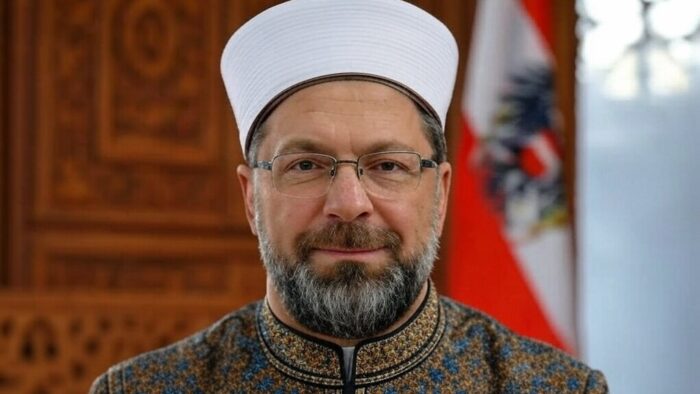Germany has urged DITIB mosques to cut ties with Turkish President Erdogan amid concerns over his antisemitism and Islamist agenda. On 11 September 2025, The Jerusalem Post reported that a Federal Ministry of Interior spokesperson had called on Germany’s largest Turkish-Islamic association to distance itself from Erdogan. The article begins:
The German government has urged the country’s main mosque association — the Turkish-Islamic Union for Religious Affairs (DITIB) — to cut ties with Turkish President Recep Tayyip Erdogan due to his antisemitic and Islamist statements. “We expect [DITIB] to clearly distance themselves from organizations and individuals who spread antisemitic messages or promote Islamist agendas,” a Federal Ministry of Interior spokesperson told German media. Concerns about DITIB arose following the Muslim Scholars Meeting in Istanbul on August 22, which brought over 150 Islamic scholars from 50 countries to the capital to discuss Gaza. The meeting was convened by the International Union of Muslim Scholars and the Turkish Presidency of Religious Affairs (also known as Diyanet), the latter of whose president, Ali Erbas, called on Palestinians to use “all legitimate means of resistance against the Zionist occupation, including armed resistance.”
Key Points
- Germany demands DITIB, its largest Muslim organization, cut ties to Erdogan over his antisemitic and Islamist rhetoric, especially after Diyanet’s Ali Erbaş called for jihad against Israel.
- DITIB’s close links to Turkey’s Diyanet are a major German concern; officials want the group to publicly reject Islamism and antisemitism and respect Israel’s right to exist.
- Germany now trains imams locally to reduce Ankara’s influence, after long supporting DITIB-sent imams trained by Turkey.
- DITIB has faced scandals involving Turkish espionage and ties to hardline Islamist and nationalist groups, raising fears it could foster radicalization.
DITIB: Erdogan’s Influence Vehicle over German Muslims
The Turkish-Islamic Union for Religious Affairs (DITIB) has repeatedly come under scrutiny for its role as a Turkish influence vehicle on the German state, with critics and intelligence agencies accusing it of transmitting the political and ideological preferences of the Turkish government to the diaspora. German authorities and political leaders have urged government action to restrict DITIB’s influence, pointing to its organizational and financial ties to the Presidency of Religious Affairs (Diyanet) in Ankara, which reports directly to President Recep Tayyip Erdogan—a figure German officials increasingly associate with both Islamist policies and imported antisemitism, particularly after Diyanet head Ali Erbas described Israel as a “rusty dagger in the heart of Islamic geography” following Hamas’ October 7 attacks
. Critics argue that DITIB, as Erdogan’s “long arm,” functions not only as a religious association but also as a platform for Erdogan’s influence, channeling Turkish government narratives—including hostility toward Israel, support for the Palestinian cause, and skepticism of Western liberalism—into Germany’s Muslim communities. This has heightened German security concerns, especially as its activities extend beyond religious affairs to include surveillance of diaspora dissenters and political opponents.
While DITIB’s influence is increasingly met with German countermeasures, including bans on foreign-trained imams and calls for reduced state partnership with the organization, critics note that its ability to mobilize large segments of the Turkish-German population—and its continued role in events like the recent Istanbul Gaza Conference, which united Diyanet, Muslim Brotherhood, and other Islamist actors—makes it a persistent conduit for Turkish soft power and a subject of ongoing political controversy in Germany.
External references:
-
Germany’s Constitutional Protection Report: Turkish Influence in Germany (2022)
-
Germany Investigates Turkish Consulate Employee Over Suspected Espionage
Disclaimer
The Global Influence Operations Report (GIOR) employs AI throughout the posting process, including generating summaries of news items, the introduction, key points, and often the “context” section. We recommend verifying all information before use. Additionally, images are AI-generated and intended solely for illustrative purposes. While they represent the events or individuals discussed, they should not be interpreted as real-world photography.









